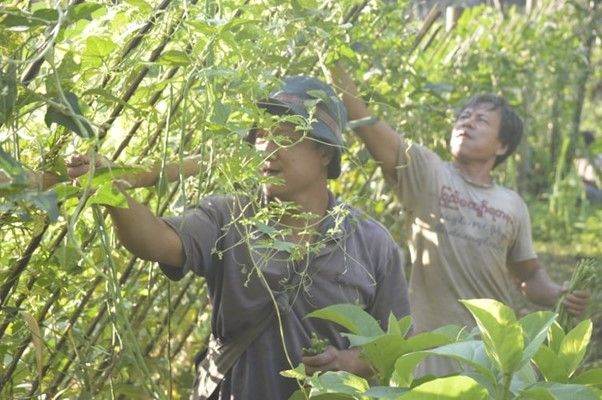Agriculture and horticulture are key economic sectors in Myanmar and are considered the backbone of its economy. According to the Food and Agriculture Organization of the United Nations (FAO), agriculture sector contributes to 37.8 % of gross domestic product (GDP), accounts for 25% to 30% of total export earnings and employs 70% of the labour force.
However, despite this huge importance many of the workers in these sectors are poor and struggle to obtain sufficient and reliable income. They equally do not have sufficient access to trainings and resources to improve their agricultural practices. This leaves them vulnerable to stresses such as environmental shocks and ultimately reduces their resilience and increases their overall vulnerability.
Myint Lwin and many of his fellow villagers also faced these challenges. He lives in a village located in rural Myanmar. Most of his fellow villagers along with him earn an income from long term crops such as betel nut and rubber using traditional cultivating methods. They make a very low income from these crops and their traditional agricultural practices do not produce sufficient yield.
To address this common challenge DCA/NCA joint country Office established a livelihoods project in consortium with other ACT Alliance local partners implementing in Myint Lwin’s village and other villages in the region. Myint Lwin received a series of technical trainings and support from the Department of Agriculture as well as participating in several other trainings organized by project partners with technical experts on conservation agriculture (CA), Slopping Agriculture Land Technology (SALT) amongst others.
After all this training Myint Lwin and other participants went back to their villages and used the knowledge and skills they had learned and applied it to their own crops and land. As Myint Lwin said ‘ I have learned many good agricultural practices such as pest management, making and using natural fertilizers, knowledge on growing new kinds of crops’.
Myint Lwin and others went on to planting new seasonal crops such as long bean and egg plants using the new techniques and thus increased their yield, income sources and reduced their overheads (such as for fertilizers).
‘This project provided me the opportunity to learn new techniques and agricultural methods and allowed me and my fellow villagers to diversify and increase our income for our families, we are all very grateful’.
About the project
Period: 2020 – 2024
Donor: NORAD


